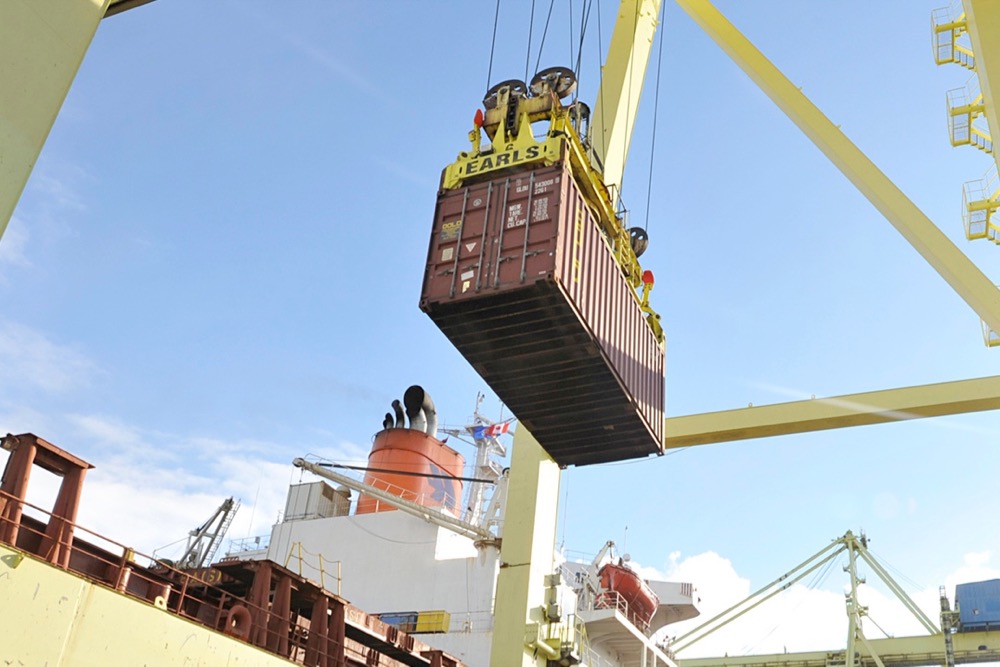Exports of containerized crops and other goods and imports of ag inputs may stall as striking longshore workers at the Port of Montreal get set to level up from part-time to full-time work stoppage.
The Syndicat des debardeurs du port de Montreal (CUPE Local 375) said Friday its members, who have been striking on weekends and refusing weekday overtime since April 13, will begin a “general unlimited strike” at 7 a.m. ET on Monday.
Given the union’s ongoing weekend strikes, however, the full-time strike technically begins Saturday, the Montreal Port Authority said Friday in a separate release.
Read Also

U.S. grains: Soy futures pull back as Brazil harvest advances
Chicago | Reuters – U.S. soybean futures fell on Monday on profit taking after a rally last week drove prices…
“This new work stoppage hinders the key role that port operations play in the economic recovery and will have a significant and very concrete impact on the population and SMEs (small/mid-size enterprises) here,” port authority CEO Martin Imbleau said.
“We’re talking about raw materials for our factories, computers for working from home and fresh exotic fruits that can no longer get to our docks, and maple syrup and pork from Quebec producers that can no longer be distributed around the world via the Port of Montreal. So, it’s urgent that the two parties come to an agreement.”
Fertilizer Canada CEO Karen Proud, in a separate release Friday, said the expanded strike “threatens food security at a critical juncture” as fertilizers enter Canada at the port for planting season in Eastern and Atlantic Canada.
“If this strike is allowed to occur, up to one million acres in Eastern Canada may go unfertilized just next week,” the organization said.
“We don’t want to hurt the Montreal economy. However, we do want to exercise our fundamental right to bargain collectively,” CUPE 375 spokesperson Michel Murray said in a separate release.
The union, in its release, said that while the parties were still negotiating, the Maritime Employers Association (MEA), which represents longshore workers’ employers, announced Thursday it would make changes to the longshore workers’ schedules starting next Monday.
“This was the second time in a week that the MEA changed the longshore workers’ working conditions,” CUPE 375 said. “These actions are worsening the conflict instead of resolving it.”
The MEA said via Twitter on Friday that “there has not been a single day of negotiations since April 15” and it’s “still waiting for a response from the union regarding the two counterproposals submitted through the mediators” on that date.
The MEA noted Friday it had received another notice of meeting that day from the Federal Mediation and Conciliation Service. “The meeting will take place on Monday, and we will be at the table,” the association tweeted.
The port authority noted liquid bulk handling, Oceanex service at its Bickerdike Terminal and its Viterra bulk grain terminal “will not be affected by this situation.”
The federal Labour Code calls for port workers during a strike or lockout to “continue to provide the services they normally provide” for loading, tie-up, let-go and movement of bulk grain vessels in and out of port.
Container traffic
But a strike would affect traffic through Montreal’s container terminals, such as its CanEst Transit terminal devoted to storage, cleaning, sifting, packing and loading of agricultural products.
The CanEst terminal, whose ownership group includes Quebec ag co-operative Sollio and Regina pulse and durum processor AGT, loads about 200 containers per day.
Pulse Canada and several other crops sector groups have previously gone public calling for federal intervention to ward off a work stoppage, saying the port at full operation sees over $880 million in containerized ag economic activity per year.
Fertilizer Canada on Friday also called on the federal government to “immediately implement back-to-work legislation” at the port, then set up “a long-term action plan to prevent future labour disputes in services that are essential to Canada’s food chain, as well as economic health and stability.”
“If the (MEA) doesn’t want a strike, all it has to do is let up on its pressure tactics and the union will do likewise. No overtime strike. No weekend strike. It’s straightforward. We want to return to the bargaining table,” CUPE’s Murray said Friday.
CUPE 375’s previous collective agreement at the port expired in December 2018, the union said, and talks with the MEA since “have bogged down on the issues of wages and life-work balance.”
For its part, the port employers’ group said via Twitter that “every decision made by the MEA is made with the aim of protecting the fluidity of the supply chain, meaning the imports and exports of our (SMEs).” — Glacier FarmMedia Network
















